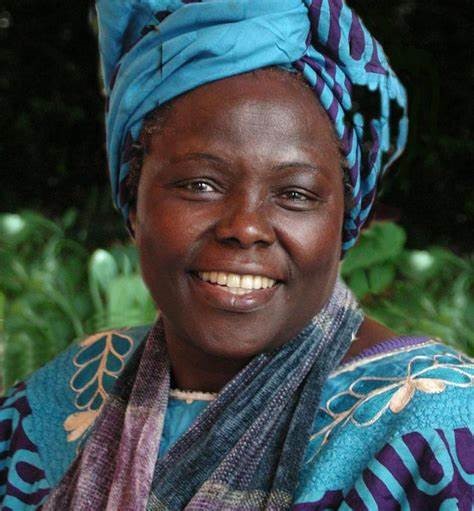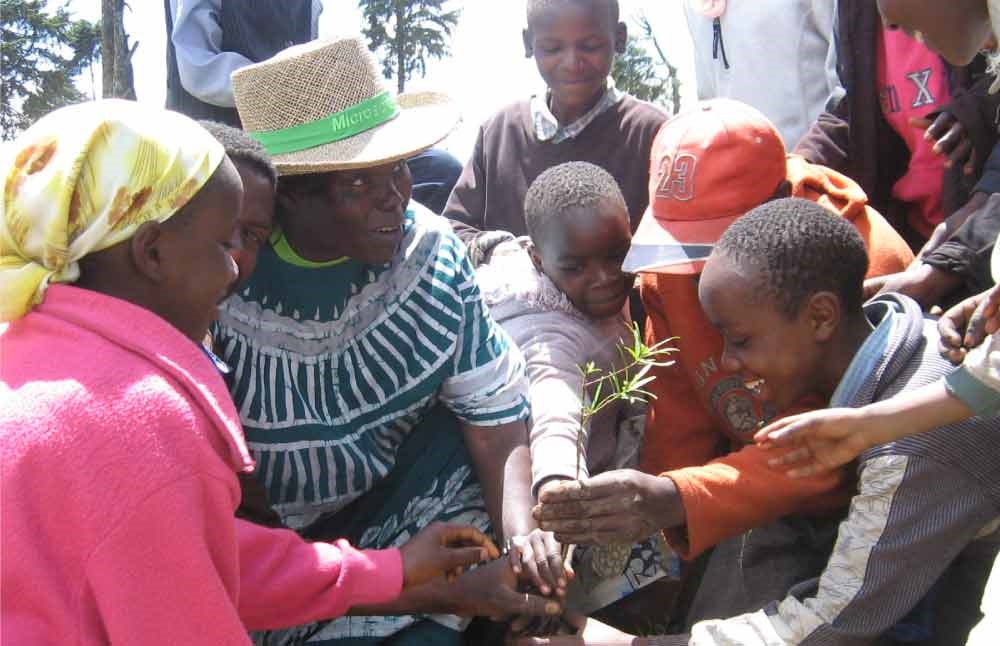
Wangari Maathai (April 1, 1940 – September 25, 2011) Kenyan politician and environmental activist who became the first Black African woman to win a Nobel Peace Prize and the first female scholar from the East and Central Africa to have obtained a doctorate in biology.
Born on April 1, 1940 Wangari Maathai in Nyeri County, located in the central highlands of Kenya. She spent her childhood in the Kenyan countryside and her young adult life in the United States. She studied biology at Mount St. Scholastica College in Kansas, then obtained a master’s degree in biological sciences from the University of Pittsburgh. Upon returning to Kenya she pursued PhD at the University of Nairobi and became the first woman in East Africa to receive a doctorate.
In the 1970s and ‘80s, along with teaching at the University of Nairobi and serving as a department chair, Wangari was an active member of the National Council of Women of Kenya, an organized group of rural Kenyan women fighting for women’s rights. In 1986, through the National Council of Women she championed the establishment of a Pan African Green Belt Movement. With this Movement she mobilized thousands of women and men to plant tens of millions of trees throughout Kenya. The Green Belt Movement approach was practical, holistic, and deeply ecological which soon saw the establishment of similar tree planting initiatives across the African continent.

Within a few years, Wangari Maathai realized that the illegal and corrupt privatization of public land necessitated a more systematic and comprehensive approach to conservation. These activities brought Wangari Maathai into direct conflict with the Kenyan government. She was harassed, threatened, beaten, and jailed. Nevertheless, Wangari Maathai and GBM persevered, earning national and global recognition for her transformative work.
Working tirelessly as a member of parliament and an assistant minister for the environment, she fought for women’s rights, democratic space, multipartyism, against corruption, land grabbing, and misogyny. Her unwavering fight for democracy, human rights, and environmental preservation earned her recognition on a global scale.
In 2004, Wangari Maathai was awarded with the 2004 Nobel Peace Prize for her contribution to sustainable development, democracy and peace. Her legacy was exemplary of how one person can be a force for change. She died on September 25, 2011, at the age of 71 years old.
EA EDITORS




